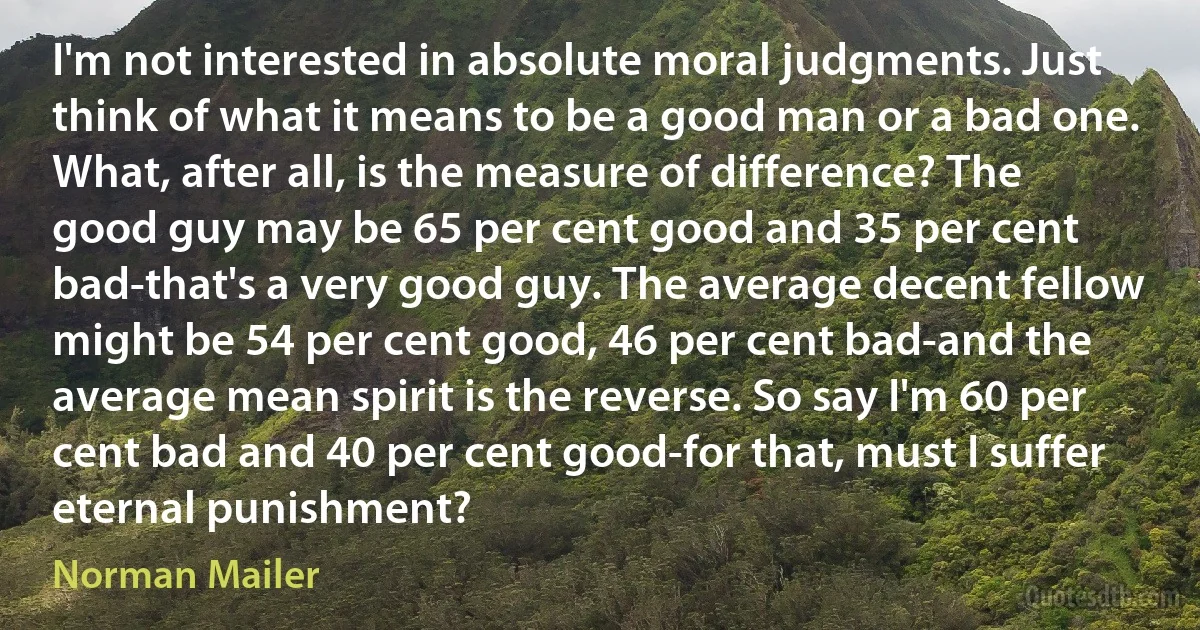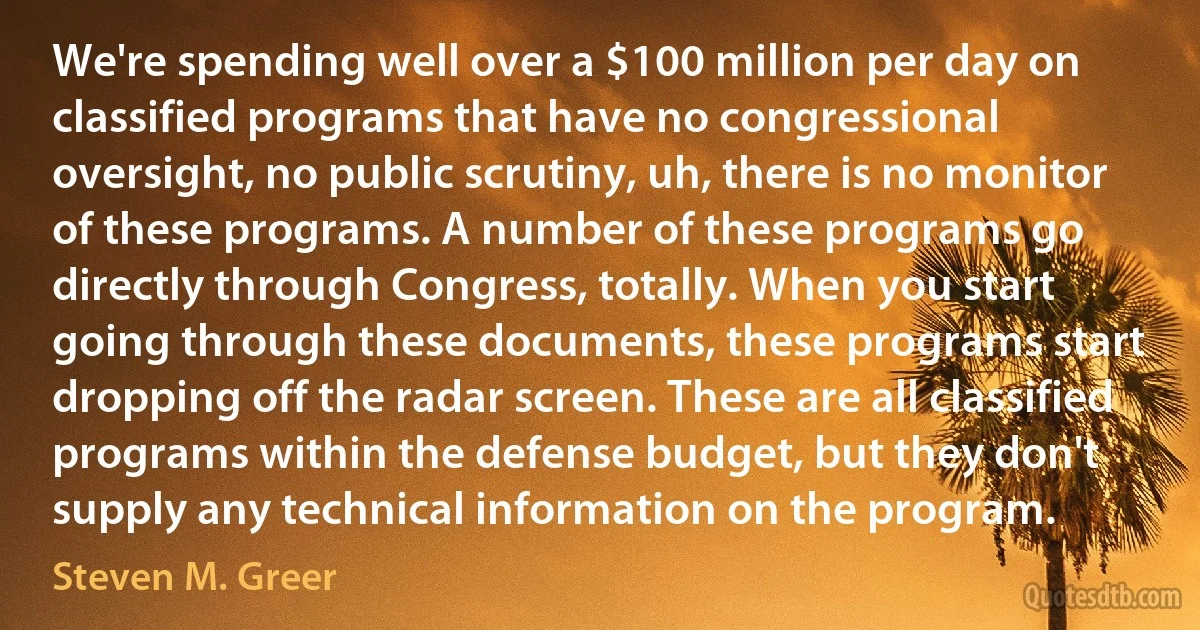Per Quotes - page 33
The application of the theory [of probability] to mortality tables in any large way may be said to have started with John Graunt... The first tables of great importance, however, were those of Edmund Halley... however... Cardan seems to have been the first to have been the first to consider the problem in a printed work, although his treatment is very fanciful. He gives a brief table in his proposition "Spatium vitae naturalis per spatium vitae fortuitum declarare," this appearing in the De Proportionibus Libri V...

Gerolamo Cardano
Marketing (or mktg, which is what you write when you're taking lecture notes at two hundred words per minute) is the biggest industry in the world, and it's invisible. It's the planet's largest religion, but the billions who worship it don't know it. It's vast, insidious and completely corrupt.
Marketing is like LA. It's like a gorgeous, brainless model in LA. A gorgeous, brainless model on cocaine having sex drinking Perrier in LA. That's the best way I know how to describe it.

Max Barry
Only Gigi Riva could kick the ball like him in Italy. But only with his left foot. Totti can use both feet and can hit the ball in several ways. Such champions can shoot ten times per match and eight of them are aimed on target, while five are very dangerous and can turn into a goal. Totti's shooting qualities are unique and they will stay intact for life.

Francesco Totti
September 11, 2001, was just another day for most of the world's desperately poor people, so presumably close to 30,000 children under five died from these causes on that day-about ten times the number of victims of the terrorist attacks. The publication of these figures did not lead to an avalanche of money for UNICEF or other aid agencies helping to reduce infant mortality. In the year 2000 Americans made private donations for foreign aid of all kinds totaling about $4 per person in extreme poverty, or roughly $20 per family. New Yorkers who were living in lower Manhattan on September 11, 2001, whether wealthy or not, were able to receive an average of $5,300 per family. The distance between these amounts encapsulates the way in which, for many people, the circle of concern for others stops at the boundaries of their own country-if it extends even that far.

Peter Singer
I have never been entirely satisfied with the materialistic or behavioristic thesis that a complete explanation of brain function is possible in purely objective terms with no reference whatever to subjective experience; i.e., that in scientific analysis we can confidently and advantageously disregard the subjective properties of the brain process. I do not mean we should abandon the objective approach or repeat the errors of the earlier introspective era. It is just that I find it difficult to believe that the sensations and other subjective experiences per se serve no function, have no operational value and no place in our working models of the brain.

Roger Wolcott Sperry
But the hatred of women is a source of sexual pleasure for men in its own right. Intercourse appears to be the expression of that contempt in pure form, in the form of a sexed hierarchy; it requires no passion or heart because it is power without invention articulating the arrogance of those who do the fucking. Intercourse is the pure, sterile, formal expression of men's contempt for women; but that contempt can turn gothic and express itself in many sexual and sadistic practices that eschew intercourse per se. Any violation of a woman's body can become sex for men; this is the essential truth of pornography.

Andrea Dworkin
On May 9th, 2001, 20 military, government, and corporate witnesses, held a press conference in Washington DC. And these are folks who have been involved in so-called "Black Budget", or covert unacknowledged projects. They described a decades long conspiracy to cover up extraterrestrial visitation to Earth. These unacknowledged special access projects are taking in at least 40 to 80 billion dollars per year. And the study of extraterrestrial technology in covert military programs. And, they are sitting on technologies that can change the world forever. This technology would liberate Earth from fossil fuels, environmental devastation, and poverty in a single generation.

Steven M. Greer
I don't own a computer, or a modem, or anything like that; I still work on a manual typewriter, by choice, and to those who consider me a Luddite I say: Fuck you and yo mama. I operate at the level of technology that best suits my needs. And I type at 120 words per minute - two fingers - I make no mistakes, and my manuscripts are real. You can pick them up and hold them. My typewriter doesn't dump its memory - I don't lose a book.

Harlan Ellison
Putting aside personal compliments what are the facts? A saving of 7 per thousand in the death-rate-2,800 lives per annum in the town. And as 5 people are ill for everyone who dies there must be a diminution of 14,000 cases of sickness, with all the loss of money, pain and grief they involve. Unless I can secure for the nation results similar to these which have followed the adoption of my policy in Birmingham it will have been a sorry exchange to give up the Town Council for the Cabinet.

Joseph Chamberlain
There is the guilty knowledge that a fall in the rate of inflation must be accompanied by a rise in the rate of unemployment and that a sharp fall from a high rate of inflation must have severe consequences, which are inescapable. This is because an economy geared to inflation at 25 per cent per annum has to undergo a terrific readjustment to change to expectation of only 15 per cent or 10 per cent per annum inflation. Since inflation cannot go on up for ever, this prospect is inescapable.

Enoch Powell
WikiLeaks has achieved far more than what The New York Times and The Washington Post in their celebrated incarnations did. No newspaper has come close to matching the secrets and lies of power that Assange and Snowden have disclosed. That both men are fugitives is indicative of the retreat of liberal democracies from principles of freedom and justice. Why is WikiLeaks a landmark in journalism? Because its revelations have told us, with 100 per cent accuracy, how and why much of the world is divided and run.

Julian Assange
Inasmuch as the formula of Rearden Metal is my own personal secret, and in view of the fact that the Metal costs much less to produce than you boys can imagine, I expect to skin the public to the tune of a profit of twenty-five per cent in the next few years."
"What do you mean, skin the public, Mr. Rearden?" asked the boy. "If it's true, as I've read in your ads, that your Metal will last three times longer than any other and at half the price, wouldn't the public be getting a bargain?"
"Oh, have you noticed that?

John Galt
We would learn more by looking at America. Oddly enough, statistics appear only in times of agitation and distress. Their function would appear to be that of omens of worse to come. We seem to have a morbid taste for them, like that of children for ghost stories that raise the hair. The American air has not been so full of fragmentary statistics since the Panic of 1893. I read again, for instance, that less than 10 per cent of our population own more than 90 per cent of the wealth... I read also that a hundred years ago 80 per cent of our population owned property and that today the percentage is 23.

Rose Wilder Lane
I am FOR any and every way of diminishing the size, the activity, the extent of Government per se, and all respect for Government, to the eventual end of eliminating Government totally. Anarchy is absence of earthly Authority over human beings, by definition and etymology; so I am an anarchist.

Rose Wilder Lane
The total amount of suffering per year in the natural world is beyond all decent contemplation. During the minute it takes me to compose this sentence, thousands of animals are being eaten alive; others are running for their lives, whimpering with fear; others are being slowly devoured from within by rasping parasites; thousands of all kinds are dying of starvation, thirst and disease. [...] In a universe of blind physical forces and genetic replication, some people are going to get hurt, other people are going to get lucky, and you won't find any rhyme or reason in it, nor any justice. The universe we observe has precisely the properties we should expect if there is, at bottom, no design, no purpose, no evil and no good, nothing but blind, pitiless indifference. DNA neither knows nor cares. DNA just is. And we dance to its music.

Richard Dawkins
The world's second-richest person called on Washington policymakers to adopt fundamental reforms on such costs to address what he called a "national emergency."
He said health care eats up 17 percent of U.S. gross domestic product, at a time when many other countries pay only nine or 10 percent of GDP but have more doctors, nurses and hospital beds per capita.
"It's like a tapeworm eating at our economic body," Buffett said on CNBC television.
"If it was a choice today between Plan A, which is what we've got, or Plan B, which is the Senate bill, I would vote for the Senate bill," he said. "But I would much rather see a Plan C that really attacks costs, and I think that's what the American public wants to see."
Rising costs, Buffett said, are holding back an economy that faced an "economic Pearl Harbor" in late 2008 when capital markets seized up.

Warren Buffett
If we keep raising carbon dioxide levels, we may not be able to think straight anymore. At a thousand parts per million (which is within the realm of possibility for 2100), human cognitive ability falls 21 percent. "The largest effects were seen for Crisis Response, Information Usage, and Strategy,” a Harvard study reported, which is too bad, as those skills are what we seem to need most.

Bill McKibben
The harsh mathematics of polio makes it clear: We cannot maintain a level of one thousand or two thousand cases a year. Either we eradicate polio, or we return to the days of tens of thousands of cases per year. That is no alternative at all. We don't let children die because it is fatiguing to save them. Our commitment as a foundation is to work with partners until no children die from polio.

Bill Gates



